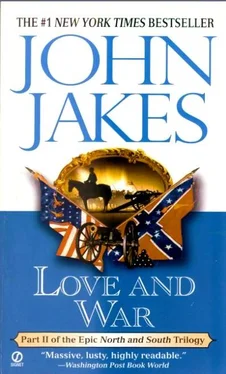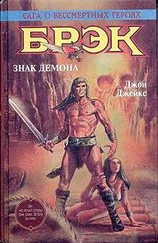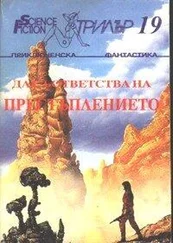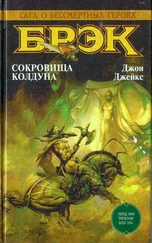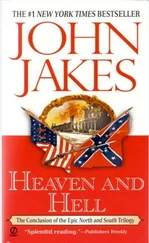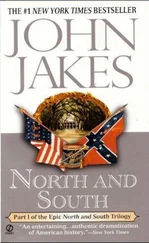Джон Джейкс - Love and War
Здесь есть возможность читать онлайн «Джон Джейкс - Love and War» весь текст электронной книги совершенно бесплатно (целиком полную версию без сокращений). В некоторых случаях можно слушать аудио, скачать через торрент в формате fb2 и присутствует краткое содержание. Жанр: Исторические приключения, на английском языке. Описание произведения, (предисловие) а так же отзывы посетителей доступны на портале библиотеки ЛибКат.
- Название:Love and War
- Автор:
- Жанр:
- Год:неизвестен
- ISBN:нет данных
- Рейтинг книги:4 / 5. Голосов: 1
-
Избранное:Добавить в избранное
- Отзывы:
-
Ваша оценка:
- 80
- 1
- 2
- 3
- 4
- 5
Love and War: краткое содержание, описание и аннотация
Предлагаем к чтению аннотацию, описание, краткое содержание или предисловие (зависит от того, что написал сам автор книги «Love and War»). Если вы не нашли необходимую информацию о книге — напишите в комментариях, мы постараемся отыскать её.
Love and War — читать онлайн бесплатно полную книгу (весь текст) целиком
Ниже представлен текст книги, разбитый по страницам. Система сохранения места последней прочитанной страницы, позволяет с удобством читать онлайн бесплатно книгу «Love and War», без необходимости каждый раз заново искать на чём Вы остановились. Поставьте закладку, и сможете в любой момент перейти на страницу, на которой закончили чтение.
Интервал:
Закладка:
A short, strange cry came from his throat; animal grief. Then, deep inside, a force began to build, its outlet impossible to deny. He opened his throbbing fists. Raised his right hand to his wet face and felt beneath his eye. That was not rain.
He threw himself forward on the grave, wet body to wet earth, and for the first time since Sharpsburg, wept.
Charles kept vigil at Augusta Barclay's grave until well past dawn, when the storm abated. Shivering, teeth chattering, he walked the long distance back to the central part of town, reaching the brigadier's house about ten.
Exhausted from the physical and emotional strain of the night before, Duncan had slept late and was only just starting his breakfast when the unbelievably sorry sight named Charles Main appeared in the door of the dining room. From somewhere above came the bawling of Charles's son and Maureen's comforting voice in counterpoint.
Clenching his jaw, Duncan strove to control himself. It was difficult. Red-faced, he said, "Christ. What did you do, drink and wallow in some gutter all night long?"
It looked like it. Charles's right pants leg showed a large blood spot. Dirt clung to his beard and every part of his soaked shirt.
"I spent the night at her grave. I spent the night thinking of my son. Trying to decide what to do."
Slowly, Duncan straightened to his most erect posture, his back no longer touching the chair. His eyes were full of hostile challenge.
"Well?"
147
"Next stop Lehigh Station. Lehigh Station will be the next stop —"
The conductor's voice faded as he left the car. The local had pulled out of Bethlehem at half past six. That meant they should be stepping through Belvedere's front door in less than an hour. George was thankful; he was spent. So was Constance, to judge from the way she leaned against him, silent.
He occupied the seat beside the window, watching twilight burnish the river and the blue-mantled slopes on the western side. He turned to say something to his wife but didn't. Her eyes were closed, her head sagging forward, creating three rounded chins in place of one.
George's tired face smoothed out as he lovingly studied her. Then his eye was caught by movement beyond the window on the other side of the aisle. As the train slowed down before a curve, he saw a cemetery and, in the foreground, three rows of five crosses, new and white. The movement drawing his attention was that of two elderly workers shoveling earth onto an unseen coffin in an open grave. A middle-aged man and woman stood beside the grave, the man with something red and white folded in his crossed arms. A flag.
The cemetery disappeared. Carefully, George put his arm around Constance so as not to wake her. But he wanted the comfort of touching her.
He felt an immense surge of love for the plump woman dozing beside him. Love for her and for his children, whose lives he must begin to supervise again, changing from soldier back to father. Love was really all that had pulled him through the past four years, he reflected. His eyes drifted across the river again, to the profusion of mountain laurel on the hillsides. Nothing else will pull us through the years just ahead, either .
"— gone too fast. With too many changes."
"Oh, definitely. I'm sorry Lincoln was martyred, but he can certainly be faulted for his policies."
George frowned, overhearing the travelers in the seat immediately behind. The first speaker sounded old, his voice full of the cranky negativism that inevitable state too often produced. The second speaker, female, sounded young. It was she who continued.
"The darkies deserve their liberty, I suppose. But at that point it should stop."
"So far as I'm concerned, it does. Let any nigger try to step through my front door like a white man, and I'll be there to deny him with my old horse pistol."
The woman sighed. "Some of our politicians aren't as courageous as you. They're actually promoting the franchise for the colored."
"Ridiculous. Why would anyone encourage such a change in the order of things? It's insanity."
Having endorsed each other's convictions, they settled into a period of quiet, leaving George to meditate amid the smells of dusty upholstery and the overflowing spittoon at the head of the car. Now the western hills were higher, their summits intermittently blocking the direct rays of the low sun. Changing patterns of shadow and light flickered over his face as he pondered.
Changes indeed. He thought of the slain President, whose unbelievably stark photograph — a recent one — they had seen in a black-draped shop window after they docked in Philadelphia. In 1860, Abraham Lincoln's party had nominated him because he was the least-known, therefore least-offensive candidate available. A strong man with strong views might have stirred strong reactions, which was dangerous to any organized group in pursuit of votes.
But once in office — the furnace of war — Lincoln, like iron, had been heated and hammered, melted and molded and transformed into something wholly new. Out of the corn-country politician of unknown views, presumably safe views — or no views or insane views, depending on the speaker — there emerged with the aid of the pricking of conscience and the whipping of expedience a President who propounded a definition of freedom so new and sweeping the nation would be years finding and deciphering all its meanings.
Lincoln's burdens of party leadership, governmental leadership, war leadership wrought radical physical changes as well. They cut gullies in the pain-eroded landscape of his face and drowned his eyes in lakes of perpetual shadow. The photographic portrait in the Philadelphia shop barely resembled those of a few years earlier.
In the hearts of the black people of the nation, Lincoln had changed from a man to a god by means of his own pen stroke. But in one way, George reflected, the man had never changed at all. He remembered Executive Mansion aides gossiping that Lincoln often lost his patience and sometimes his good humor and on rare occasions his compassion for the enemy. But it seemed to George that the man had never lost sight of his own North Star. He loved humanity, Southern as well as Northern, with a great heart. But he loved the Union more.
To preserve it, he had sorrowfully led a people to war. He had suffered mental depression and haunted sleep, fought the demons of ineptitude and incompetence and innuendo, hectored and joked, preached and cajoled, dreamed and wept for it. And then he had been chosen as the last sacrifice at the site where its continuity had been assured: the blood altar.
At least Abraham Lincoln had known for five days that his North Star still shone bright and pure, above the cooling embers of fires first kindled in that long-lost spring George remembered vividly, frighteningly, to this hour. The Union stood — profoundly altered but fundamentally unchanged.
George recognized but couldn't fully understand the paradox. It was simply there, mighty, majestic, and mysterious, like the murdered President himself. It was there — Lincoln was there — and would be forever, George suspected.
Closing his eyes, he rested a moment. Then he drew a circle of thought of much smaller diameter and meditated on the changes within that.
Orry dead — and his widow making no secret that she was, at least in the strictest view of Southerners, a Negress. He had heard it first from his brother Billy, but Madeline had candidly discussed it before the Hazards left Mont Royal.
And Charles. Everyone agreed Charles had been burned out by the war. Become a sullen, angry man. Brett, by contrast, was eagerly anticipating motherhood and, amazingly, often sounded more like Virgilia than a Southerner.
Cooper occasionally displayed a new, almost reactionary streak, as if he had turned about and finally accepted the Southern inheritance his father had always wanted to bequeath to him, and he had scorned for such a long time. In Cooper's case, anyway, George could identify the causes of the transformation. Cooper had lost his son, and he was growing older. Age brought a man more conservative thoughts and opinions. As George well knew.
Читать дальшеИнтервал:
Закладка:
Похожие книги на «Love and War»
Представляем Вашему вниманию похожие книги на «Love and War» списком для выбора. Мы отобрали схожую по названию и смыслу литературу в надежде предоставить читателям больше вариантов отыскать новые, интересные, ещё непрочитанные произведения.
Обсуждение, отзывы о книге «Love and War» и просто собственные мнения читателей. Оставьте ваши комментарии, напишите, что Вы думаете о произведении, его смысле или главных героях. Укажите что конкретно понравилось, а что нет, и почему Вы так считаете.
